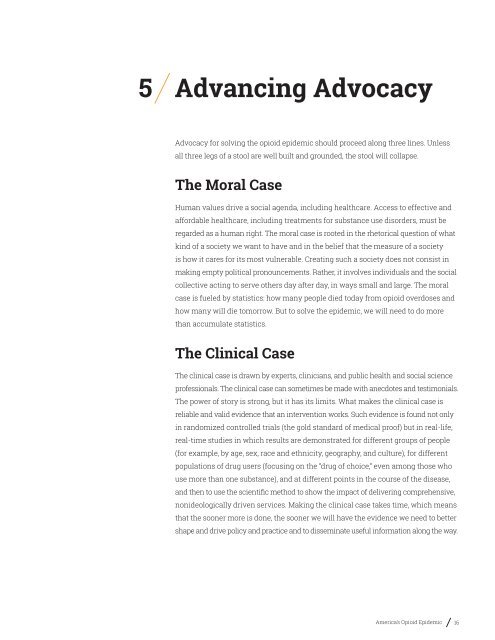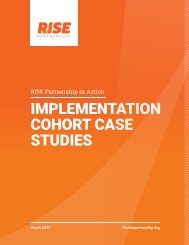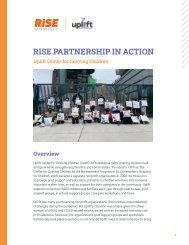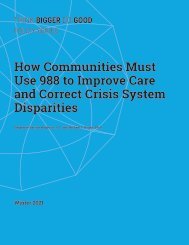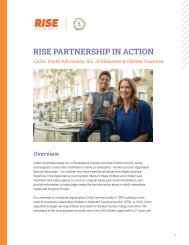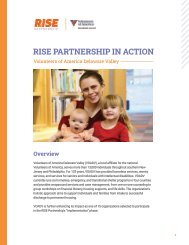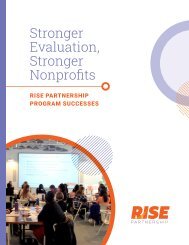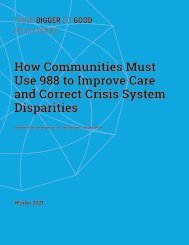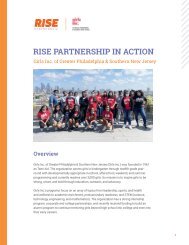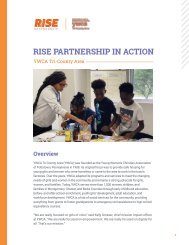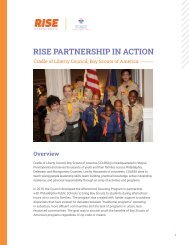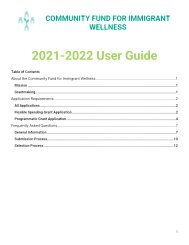Americas Opioid Epidemic
You also want an ePaper? Increase the reach of your titles
YUMPU automatically turns print PDFs into web optimized ePapers that Google loves.
5<br />
Advancing Advocacy<br />
Advocacy for solving the opioid epidemic should proceed along three lines. Unless<br />
all three legs of a stool are well built and grounded, the stool will collapse.<br />
The Moral Case<br />
Human values drive a social agenda, including healthcare. Access to effective and<br />
affordable healthcare, including treatments for substance use disorders, must be<br />
regarded as a human right. The moral case is rooted in the rhetorical question of what<br />
kind of a society we want to have and in the belief that the measure of a society<br />
is how it cares for its most vulnerable. Creating such a society does not consist in<br />
making empty political pronouncements. Rather, it involves individuals and the social<br />
collective acting to serve others day after day, in ways small and large. The moral<br />
case is fueled by statistics: how many people died today from opioid overdoses and<br />
how many will die tomorrow. But to solve the epidemic, we will need to do more<br />
than accumulate statistics.<br />
The Clinical Case<br />
The clinical case is drawn by experts, clinicians, and public health and social science<br />
professionals. The clinical case can sometimes be made with anecdotes and testimonials.<br />
The power of story is strong, but it has its limits. What makes the clinical case is<br />
reliable and valid evidence that an intervention works. Such evidence is found not only<br />
in randomized controlled trials (the gold standard of medical proof) but in real-life,<br />
real-time studies in which results are demonstrated for different groups of people<br />
(for example, by age, sex, race and ethnicity, geography, and culture), for different<br />
populations of drug users (focusing on the “drug of choice,” even among those who<br />
use more than one substance), and at different points in the course of the disease,<br />
and then to use the scientific method to show the impact of delivering comprehensive,<br />
nonideologically driven services. Making the clinical case takes time, which means<br />
that the sooner more is done, the sooner we will have the evidence we need to better<br />
shape and drive policy and practice and to disseminate useful information along the way.<br />
America’s <strong>Opioid</strong> <strong>Epidemic</strong> 16


